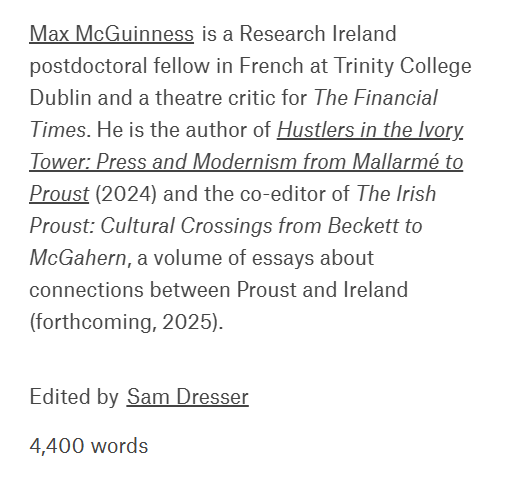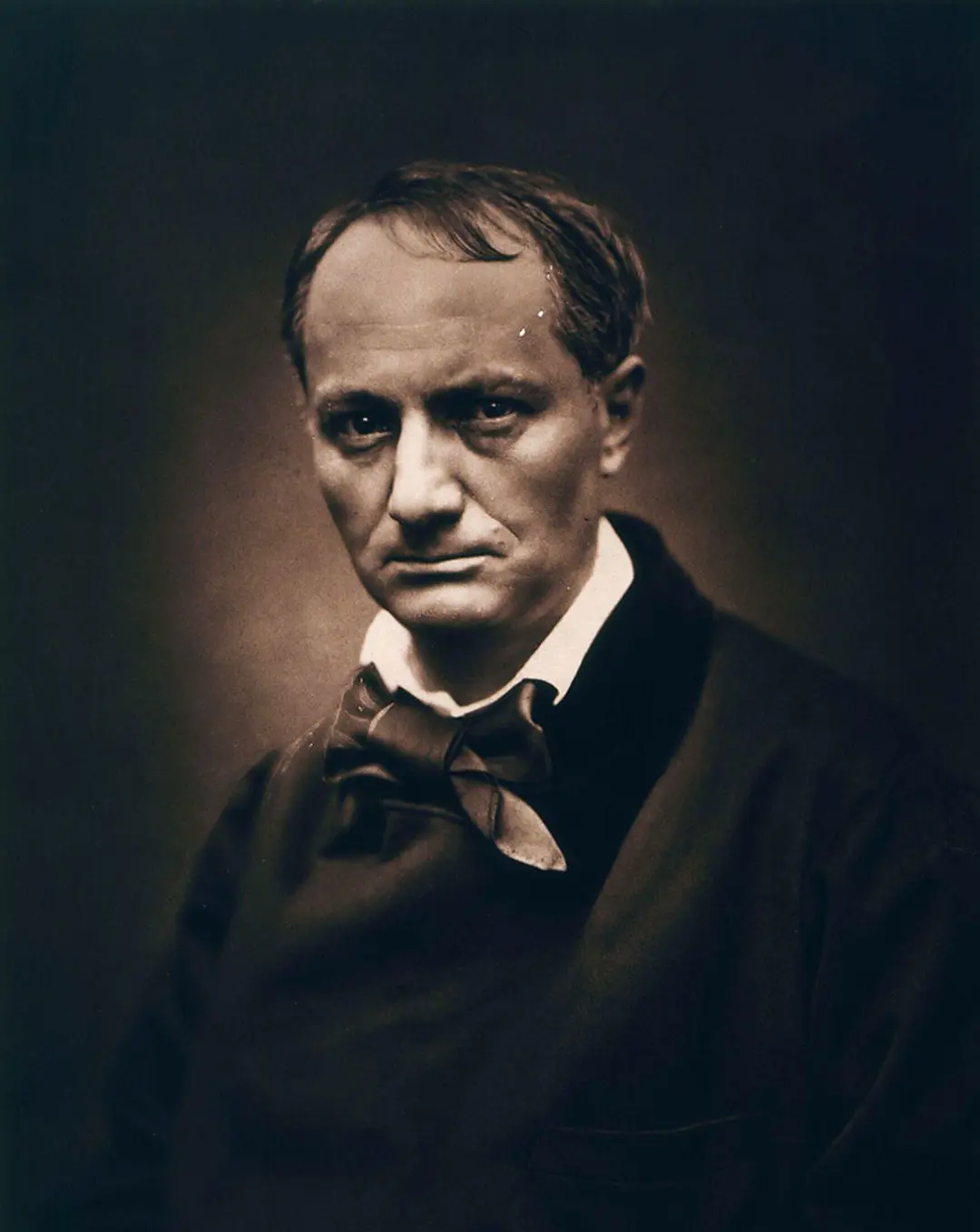Elegance and hustle: How French modernists responded to the newspaper world
 How French modernists from Proust to Mallarmé were alarmed and inspired by the voracious dynamism of the newspaper world
https://aeon.co/essays/the-french-modernists-loathed-and-loved-the-mass-media-of-their-day
How French modernists from Proust to Mallarmé were alarmed and inspired by the voracious dynamism of the newspaper world
https://aeon.co/essays/the-french-modernists-loathed-and-loved-the-mass-media-of-their-day
 In the Bus (c 1885) by Maurice Delondre. Courtesy the Musée Carnavalet, Paris
In the Bus (c 1885) by Maurice Delondre. Courtesy the Musée Carnavalet, Paris
 In the 1860s, Charles Baudelaire bemoaned what we might now call doomscrolling:
In the 1860s, Charles Baudelaire bemoaned what we might now call doomscrolling:
Every newspaper, from the first line to the last, is nothing but a tissue of horrors. Wars, crimes, thefts, licentiousness, torture, crimes of princes, crimes of nations, individual crimes, an intoxicating spree of universal atrocity. And it’s this disgusting aperitif that the civilised man consumes at breakfast each morning … I do not understand how a pure hand can touch a newspaper without a convulsion of disgust.
The poet’s revulsion was widely shared in 19th-century France. Amid rapid increases in circulation, newspapers were depicted as a virus or narcotic responsible for collective neurosis, overexcitement and lowered productivity. Criminality was blamed on the suggestive effects of lurid crime reports. And many writers concluded that the newspaper would soon kill off the book and imaginative literature altogether.
 Portrait of Charles Baudelaire (1862) by Étienne Carjat. Courtesy the V & A Museum, London
Portrait of Charles Baudelaire (1862) by Étienne Carjat. Courtesy the V & A Museum, London
These dismal appraisals yielded a series of fiercely pessimistic novels of journalism by authors such as Honoré de Balzac, the Goncourt brothers and Guy de Maupassant. Each portrayed the press as a corrupt and corrupting behemoth that was devouring art and culture within its predatory maw. ‘Newspapers are an evil,’ as one world-weary author remarks in Balzac’s
Lost Illusions (1837-43). Another describes newspaper offices as ‘whorehouses of thought’, anticipating the degradation of the hero, Lucien de Rubempré, from idealistic young poet to unscrupulous hack as he falls for a glamorous courtesan.
But French writers’ loathing of journalism was underlain by a fundamental tension: those who criticised the press most vehemently were themselves journalists, and their novels of journalism were typically published in the same newspapers they excoriated. Journalism and literature were so deeply entwined that newspapers became ‘the laboratory of
literature’ throughout the long 19th century, generating new literary forms, such as prose poetry and the serial novel.
snip



